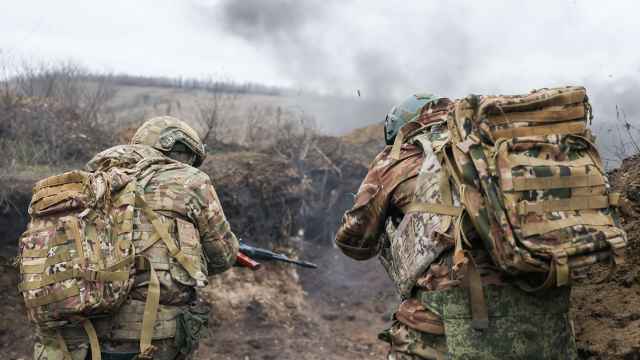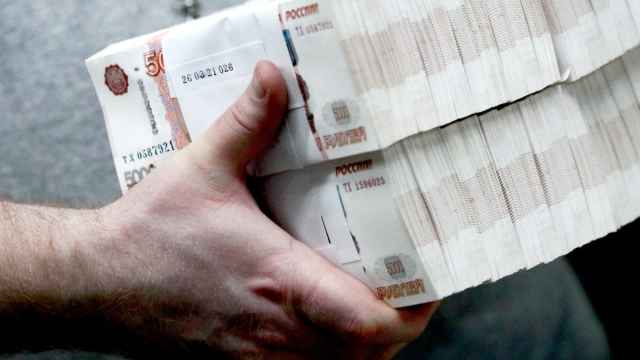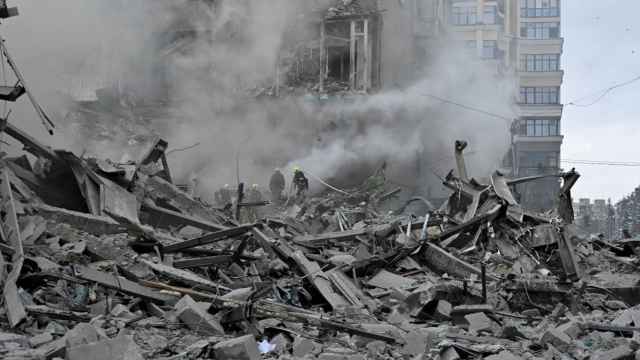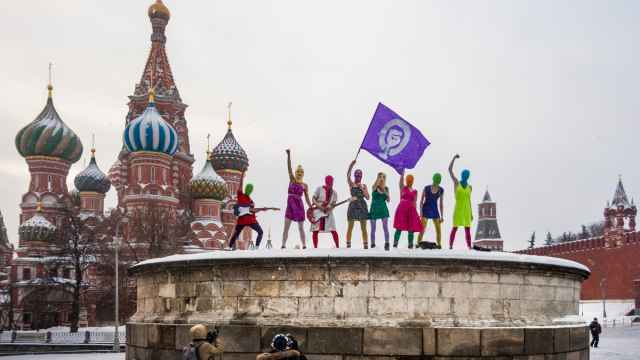Длинное, зелёное, мясом пахнет: long, green and smells like meat
My study of the annual addresses of Russian leaders is something like Kremlinology crossed with reading tea leaves with a bit of linguistic analysis thrown in. I'm looking for a sense of mood conveyed by language, some linguistic hint of what lies ahead. And with Vladimir Putin, I'm looking for some "special" expressions, That is, expressions I don't understand that turn out to be archaic or crude — or both.
So I listened to Vladimir Putin's 2012 address before the State Duma on Wednesday. And then I read the transcript. I scratched my head and read it again. Vladimir Vladimirovich! What happened? When did you turn into a linguistic Mr. Bland?
Of course, there is some of his trademark assertiveness, as in хочу подчеркнуть (I must stress) and уверяю (I insist).
But most of the speech is based on rhetorical questions and answers — a whopping 82 of them, by my count. Many of the questions follow happy talk about progress and admit that things could, of course, be better: Достаточно этого или нет? Недостаточно. (Is that enough? No, it's not.)
Some of the self-interviewing seems to even undercut the stream of positive statistics, like this internal Q&A about rising imports: Почему это происходит? Потому что наша экономика, наша промышленность не отвечает вызовам сегодняшнего дня по качеству и по цене товаров. (Why does this happen? Because our economy and our industries are not meeting today's demand for high-quality, low-cost goods.)
Then there was an astonishing bit about NATO operations in Afghanistan, which was like a patient teacher walking dim-witted students through a difficult concept: Мы с вами понимаем, что происходит в Афганистане, ведь правда? (You and I understand what's happening in Afghanistan, isn't that true?) Мы с вами заинтересованы в том, чтобы ситуация там была под контролем, так? (You and I want the situation there to be under control, right?) И мы с вами не хотим, чтобы наши солдаты воевали на таджикско-афганской границе? Не хотим. (And do you and I want our soldiers fighting along the Tajik-Afghan border? No, we don't.)
This little exchange ended with: Но там западное сообщество и НАТО присутствуют. Дай Бог им здоровья, пускай работают. (But the Western community and NATO are there. God grant them health. Let them work.)
Give me a minute to pick up my jaw from the floor.
In response to criticism from the Communist Party deputies, Putin gave a spirited defense of capitalism: В целом она [плановая экономика] гораздо менее эффективна, чем рыночная экономика (Overall, a planned economy is far less effective than a market economy). And he stomped on any attempt to romanticize the economic success of the Soviet period, sometimes with old jokes: Длинное, зелёное, мясом пахнет. Что такое? Электричка в Москву. (What's long, green and smells like meat? A Moscow commuter train) — that is, a train filled with shoppers who came to Moscow to buy meat that was unavailable outside the capital.
There were shows of modesty and appeals to work together, like: Знаете, вместе надо подумать, это непростой вопрос. (You know, we have to think about that together. It's not an easy question.) Or: Я не знаю, надо вместе подумать. (I don't know. We have to think about that together.)
Что это значит? Я не знаю. Давайте мы с вами вместе подумаем. (What does this mean? I don't know. Let's think about this together.)
Michele A. Berdy, a Moscow-based translator and interpreter, is author of "The Russian Word's Worth" (Glas), a collection of her columns.
A Message from The Moscow Times:
Dear readers,
We are facing unprecedented challenges. Russia's Prosecutor General's Office has designated The Moscow Times as an "undesirable" organization, criminalizing our work and putting our staff at risk of prosecution. This follows our earlier unjust labeling as a "foreign agent."
These actions are direct attempts to silence independent journalism in Russia. The authorities claim our work "discredits the decisions of the Russian leadership." We see things differently: we strive to provide accurate, unbiased reporting on Russia.
We, the journalists of The Moscow Times, refuse to be silenced. But to continue our work, we need your help.
Your support, no matter how small, makes a world of difference. If you can, please support us monthly starting from just $2. It's quick to set up, and every contribution makes a significant impact.
By supporting The Moscow Times, you're defending open, independent journalism in the face of repression. Thank you for standing with us.
Remind me later.







